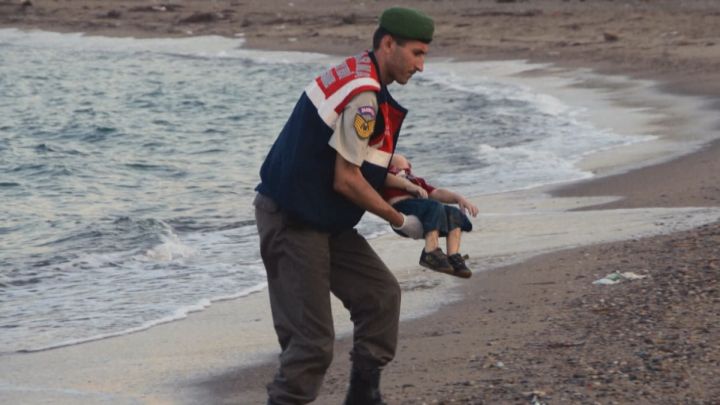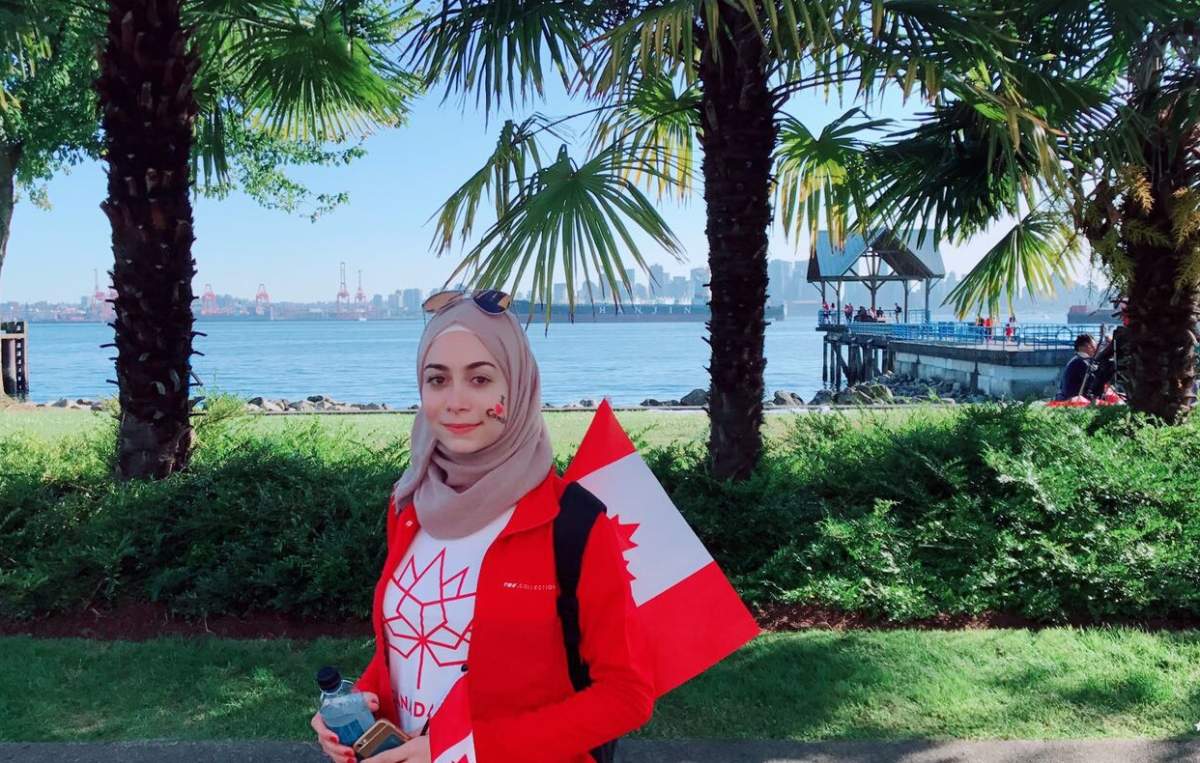Almost 50,000 Syrian refugees have been accepted into Canada over the last couple of years, thousands of them here in Metro Vancouver.

About 40 per cent of those refugees were sponsored by private citizens.
These are people who are putting up their own money to pay for rent and groceries, and are giving their time to help guide families through culture shock.
LISTEN: B.C.’s refugee sponsors
Helen Slinger is a Vancouver-based documentary filmmaker, who along with her business partner Marureen Palmer, had been talking about trying to find a way to help people affected by the war in Syria.
“We were walking on the trails – we often have business meetings with our dogs walking up Mosquito Creek trail in North Vancouver – and we had been talking about the Syrian crisis a lot,” she said.
Initially, the pair weren’t sure they could convince a big enough group to join them in an effort.
But then, in September 2015, everything changed.
- U.S. border crossings from Canada down 24 per cent as U.S. projected to lose billions
- Vancouver Island wood chip plant’s closure ‘a difficult moment,’ says CEO
- Man shot, killed in Burnaby had connection to B.C. gang conflict, investigators say
- Westham Island Bridge closed indefinitely as repairs more extensive, TransLink says
That’s when the body of three-year-old Alan Kurdi washed up on a beach in Turkey.
A local photographer captured the moment in a picture: he’s wearing a red shirt and blue shorts. He’s lying facedown in the sand.
Alan, his mother, and his five-year-old brother had drowned trying to escape the war in Syria.
“They didn’t deserve to die. They didn’t. They were going for a better life,” Slinger said.
‘It shouldn’t happen. It shouldn’t happen to them.”
The picture went viral, jolting the world into paying attention to a crisis that had been going on for years.

Get daily National news
Metro Vancouver in particular sat up, listening to Alan’s aunt Tima, who lives in Coquitlam.
WATCH: Tima Kurdi urges Canadians to help Syrian refugees
For Slinger, it was a catalyst.
“So we got together, a group of like-minded friends that we knew would possibly be interested and just started talking about whether or not we could do something and do something fast. Because everybody felt so bad and so helpless.”
Doing something fast meant finding a creative way through an application process that can sometimes take years.
Although their group of friends aren’t religious, they teamed up with the local United Church and applied under their umbrella.
With the church’s track record of refugee sponsorships, they qualified faster, and met a relative of the family they would soon bring to Vancouver.
“They had been on the move for, I believe, five years – from Damascus to finally Turkey, which is where they were when we met them first,” she said.
“Sara first met one of our group via email, and we spent months working on endless forms. And the rest is history – they came September 21, 2016.
The Sara that Helen is referring to is Sara Al-Wattar, one of a family of six that was sponsored.
WATCH: Red tape blamed for delaying arrival of Syrian refugees

For her, even talking about the moment she arrived at YVR is emotional.
“Once I saw them, all the group, they were smiling and I felt how much they are warmhearted, and they are so excited to meet all of us without knowing any of us,” Al-Wattar said.
“They were fabulous, actually. I was so excited to meet all of them.”
The moment was equally emotional for Slinger and her group of co-sponsors.
“The day that Canada said “we accept you,” we got a picture of the entire family. I believe all thumbs up, and Sara’s hand had written on it, in pen, “They said yes,” Slinger said.
“It travelled our group with many tears, much emotion, and from that moment on I think we all felt like, we already knew this family.”
Just over a year later, Al-Wattar is already working part-time and going to school at Capilano University, continuing an education that was interrupted by the war.
She’s working towards becoming an accountant. Helen’s nickname for her is “Smartypants.”
The move comes with challenges though, including improving her English quickly enough to keep up at work and at school.
And she says the snow and ice last winter was a bit of a shock.
But support and friendship from Slinger and the sponsor group will continue – even though their one-year obligation as sponsors has already ended.
For Al-Wattar, Canada is now home.
“Once we left Syria, we missed a lot of our families. So best part, we found a new family, a new Canadian family here, which is our fabulous group,” she said.
And for Slinger, the challenges and the bureaucracy couldn’t have been more worth it.
“We had no idea how complicated it would be… or how fabulous, and rewarding, and fun.”













Comments